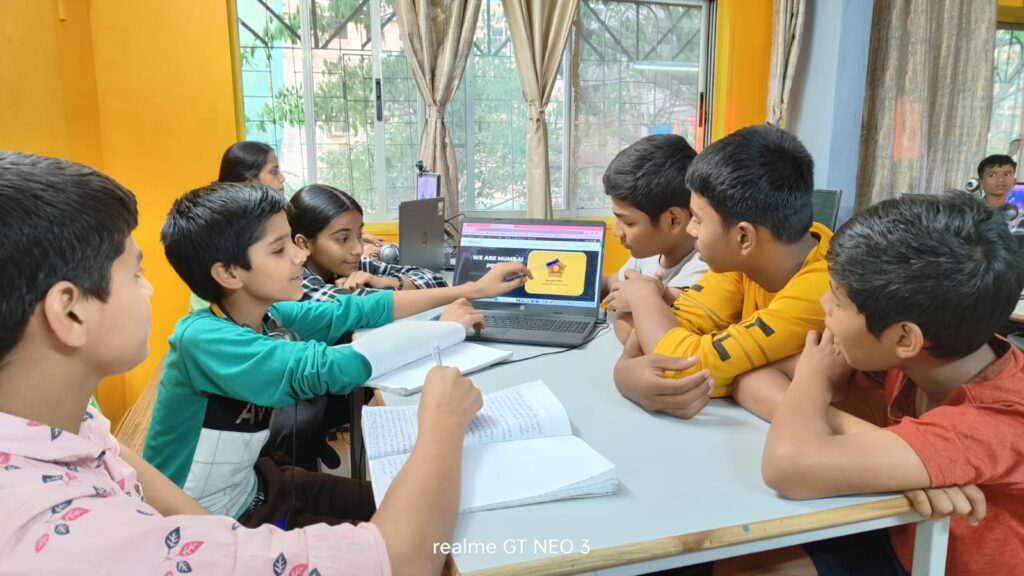Unlocking Success Together: The Power of Group Study for Every Student

Apni pathshala The Power of Group Study for Every Student Studying in groups is a powerful way for students to learn and succeed together. When students come together to study, they can share ideas, clarify concepts, and support each other’s learning. Unlocking Success Together: The Power of Group Study for Every Student Group study provides a collaborative environment where students can work together towards a common goal: academic success.In a group study setting, students have the opportunity to learn from each other’s strengths and expertise. Each student brings their unique perspective and insights to the table, enriching the learning experience for everyone involved. For example, one student might excel in math while another has a strong grasp of science concepts. By working together, students can leverage each other’s strengths to deepen their understanding of challenging topics and overcome learning obstacles. Moreover, group study encourages active participation and engagement among students. In a group setting, students are more likely to ask questions, voice their opinions, and actively contribute to discussions. This active engagement fosters a deeper level of understanding and retention of material compared to passive learning methods. When students actively participate in group discussions, they are more likely to remember key concepts and apply them effectively in future assessments.Furthermore, group study promotes effective communication and collaboration skills, which are essential for success in academic and professional settings. As students work together to solve problems and complete assignments, they must communicate clearly, listen attentively, and collaborate with their peers. These interpersonal skills are invaluable in the workplace, where teamwork and collaboration are often required to achieve common goals. In addition to academic benefits, group study also provides social support and camaraderie among students. Studying with peers can help alleviate feelings of isolation and loneliness, especially for students who may struggle with academic challenges or feel overwhelmed by coursework. Group study sessions offer a supportive environment where students can share their experiences, seek advice, and encourage each other to persevere through difficult times.Moreover, group study encourages accountability and motivation among students. When students commit to studying together, they hold each other accountable for completing assignments, staying on track with coursework, and preparing for exams. This sense of accountability motivates students to stay focused and disciplined in their studies, reducing procrastination and increasing productivity. 1) What are the benefits of doing a group study? Group study offers several benefits to students. Firstly, it provides an opportunity for collaboration and sharing of ideas among peers. By studying in a group, students can learn from each other’s strengths and perspectives, leading to a deeper understanding of course material. Additionally, group study promotes active participation and engagement, as students are more likely to ask questions and contribute to discussions in a group setting. Moreover, group study fosters accountability and motivation, as students hold each other accountable for completing assignments and staying on track with coursework. Furthermore, group study enhances communication and teamwork skills, which are essential for success in academic and professional settings. Overall, group study is a valuable tool for promoting academic success and fostering a supportive learning environment. 2) How can I ensure a successful group study session? To ensure a successful group study session, it’s important to establish clear goals and objectives for the study session. Begin by identifying the topics or concepts that need to be covered and create a study plan accordingly. Assign specific tasks or roles to each group member to ensure equal participation and contribution. Set ground rules for the study session, such as respecting each other’s opinions, staying focused, and avoiding distractions. Create a conducive study environment free from distractions, such as noise or electronic devices. Encourage open communication and collaboration among group members, and be willing to listen to different perspectives and ideas. Finally, reflect on the group study session afterward to identify areas for improvement and make adjustments as needed for future sessions. 3) What are the challenges in group study sessions? While group study sessions offer many benefits, they can also present certain challenges. One common challenge is coordinating schedules and finding a time that works for all group members to meet. Additionally, group dynamics can sometimes be challenging to manage, as different personalities and learning styles may clash. Communication barriers, such as language barriers or differences in communication styles, can also hinder effective collaboration in group study sessions. Moreover, conflicts may arise among group members regarding study methods, goals, or division of tasks. Finally, distractions and lack of focus can detract from the effectiveness of group study sessions, especially if the study environment is not conducive to learning. Despite these challenges, with proper planning, communication, and collaboration, group study sessions can be highly beneficial for all involved. In conclusion, group study is a powerful tool for promoting academic success and fostering a supportive learning environment. By working together, students can leverage each other’s strengths, deepen their understanding of course material, and develop important communication, collaboration, and teamwork skills. Group study provides social support, accountability, and motivation, helping students stay engaged and motivated in their studies. Ultimately, group study empowers every student to unlock their full potential and achieve academic success together.
